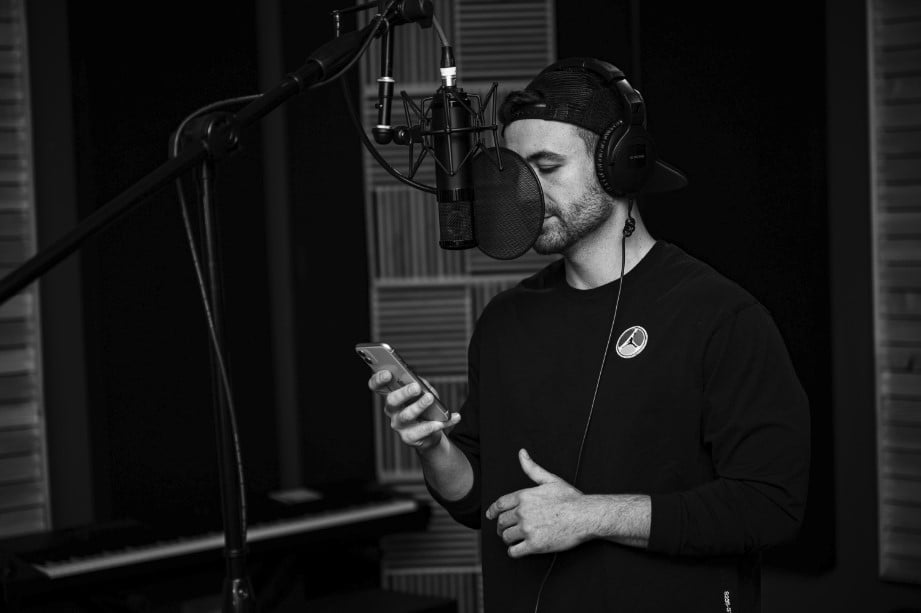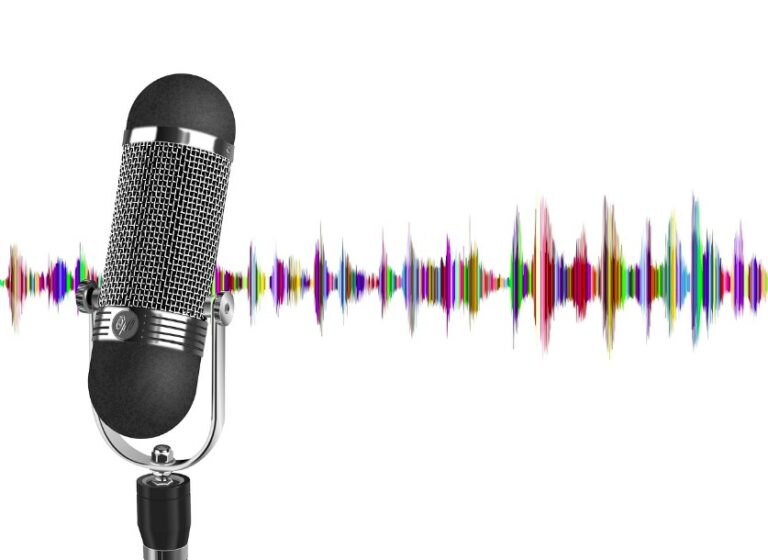Share with friends:
Have you ever listened to your recorded voice and cringed a little? And thus, have you asked yourself, “… is that really me?” If so, you are not alone. It is a curious experience that most of us have faced at some point in our lives. The voice we hear when we speak is not quite the same as the one we hear on a recording.
This difference often leaves us puzzled, questioning why we don’t quite like our own recorded voices.
But what causes this aversion, and is there a way to overcome it? This aversion to recorded voices is a common but complex phenomenon. It’s rooted in both science and psychology, and heavily influenced by societal pressures and technological advancements.
The truth is, embracing our recorded voices and understanding the reasons behind our discomfort can lead to greater self-acceptance and personal growth.
The Mismatch Between Internal and External Voice
We humans are creatures of habit, and we become accustomed to the way our voice sounds to us. Our internal voice is something we’ve grown up with and heard all our lives. This familiarity creates a sense of comfort and identity. When we hear our recorded voice, which doesn’t match our internal voice, it can feel foreign and uncomfortable.
According to science, when we speak, the vibrations from our vocal cords travel through our skull and jaw, reaching our inner ear. This internal perception is deeper and richer than the voice that others hear, which is influenced by external factors like the acoustics of the environment and the way sound waves travel through the air.
When we speak, sound waves are created, traveling through the air and into our ears. This is known as “air conduction”. However, there’s a secondary way we hear our voice: through vibrations inside our skull set off by our vocal cords. These vibrations travel up through our bony skull and down into our ear drums. This process, known as “bone conduction,” deepens the sound of our voice.
MirageNews
Therefore, our perception of our own voice is different from how others hear it. The unfamiliarity of hearing our recorded voice, which lacks these bone-conducted sounds, contributes to the discomfort.
What Can Worsen the Dislike of Our Recorded Voice?

The first time you hear your recorded voice, you may experience a profound disconnect. It sounds unfamiliar, strange, and not at all like what you hear when you speak. This initial shock is a common experience, but understanding why it happens can help you become more at ease with your recorded voice.
Other negative factors:
1. Psychological Factors
The way we perceive our own voice is closely tied to our self-esteem and self-confidence. Individuals with lower self-esteem may be more prone to disliking their recorded voices, as they are less comfortable with self-perception. This discomfort can impact personal development, and can make it essential to address the issue.
2. Social Influences
What others think of our voices can significantly affect our self-perception. The fear of judgment from peers and societal norms can make us more critical of our own voice. We might dislike it simply because we believe others do. This social pressure can be challenging to overcome.
3. Technology’s Role
In the age of social media and endless filters and editing options, technology plays a massive role in how we perceive our voices. The prevalence of apps and platforms that allow us to manipulate our voices can lead to unrealistic expectations. It’s essential to be mindful of the impact of technology on self-perception.
Coping Strategies: Learn to Love Your Voice

To make peace with your recorded voice, consider adopting strategies like listening to yourself more often, practicing public speaking, and embracing self-acceptance. By doing so, you can overcome the discomfort and develop a more positive attitude toward your voice, which can boost your self-esteem.
While disliking our recorded voices is a common phenomenon, it’s possible to change our perspective and develop a healthier relationship with our own voices.
Here are some coping strategies to help you learn to appreciate and even love your unique voice:
1. Embrace Your Uniqueness
Remember that your voice is an essential part of who you are. It’s unique and represents your individuality. Instead of comparing it to others, celebrate your distinctive vocal signature.
2. The Power of Adaptation
The more you listen to your recorded voice, the more accustomed you become to it. Many individuals who initially dislike their voices find that, over time, they become more accepting. The brain’s remarkable ability to adapt to new stimuli allows for this change in perception.
3. Record and Review
Regularly recording your voice and listening to the recordings can help you become more accustomed to the way you sound. Over time, this can reduce the discomfort you feel when hearing your recorded voice.
4. Focus on Content, Not Sound
Shift your attention from how your voice sounds to what you’re saying. Remember that the substance of your message is far more important than the pitch or tone of your voice.
5. Practice Mindfulness
Practicing mindfulness can help you become more aware of your self-critique and negative thought patterns. By learning to be present and non-judgmental, you can reduce the anxiety associated with your recorded voice.
6. Share Your Voice
Don’t be afraid to share your voice with others. Whether it’s through public speaking, singing, or podcasting, sharing your voice can boost your confidence and help you accept your unique vocal identity.
7. Seek Professional Help
If your dislike for your recorded voice is causing you significant distress or affecting your self-esteem, consider seeking professional help. Speech therapists and voice coaches can provide guidance and exercises to improve your vocal confidence.
FAQs
1. Can I change the way I perceive my recorded voice? Yes, with time and practice, you can become more comfortable with your recorded voice.
2. Why does my recorded voice sound so different from what I hear when I speak? Your perception of your own voice is influenced by the way you hear it internally and externally, creating a disconnect.
3. How does technology impact our perception of our voices? Technology, including social media and editing tools, can create unrealistic expectations and affect how we perceive our voices.
4. Is it possible to improve my self-esteem by accepting my recorded voice? Yes, accepting your recorded voice can boost self-esteem and overall self-perception.
5. Are there any famous examples of people who initially disliked their recorded voices but changed their perception? Yes, several celebrities have spoken about their initial discomfort with their recorded voices, only to become more accepting over time.


0 Comments